The central theme of the National COVID-19 Immunisation Programme is “Lindung Diri, Lindung Semua”. This strategy aims to reach herd immunity where at least 70% of the Malaysian adult population* (citizens or non-citizens included) are vaccinated – giving the nation greater protection against the spread of the Covid-19 virus[1].
Herd immunity is an indirect form of disease prevention that happens when a population has developed immunity to the disease through vaccination or previous infection. The World Health Organization (WHO), on the other hand, believes that obtaining ‘herd immunity’ through vaccination, rather than allowing the disease to spread throughout society, will result in fewer incidences and fatalities[2].
Malaysia’s Current Vaccination Rate
To date, 18.8 million people in Malaysia have registered under the national vaccination program. The majority of Malaysia’s states have fairly high vaccination take up (registration) between 80-100% of the adult population. Kuala Lumpur and Putrajaya have the highest take-up rates at 100% with Negeri Sembilan just behind at 95%. There are however a couple of states that are still rallying their adult population to sign up for vaccinations and they are Kelantan at 58.2%, slightly more than half of the adult population and Sabah being the lowest at 35.9%. The data is hard to ignore as the nation forges on to achieve herd immunity, all states must come up to speed with the vaccination program – and none left behind[3].
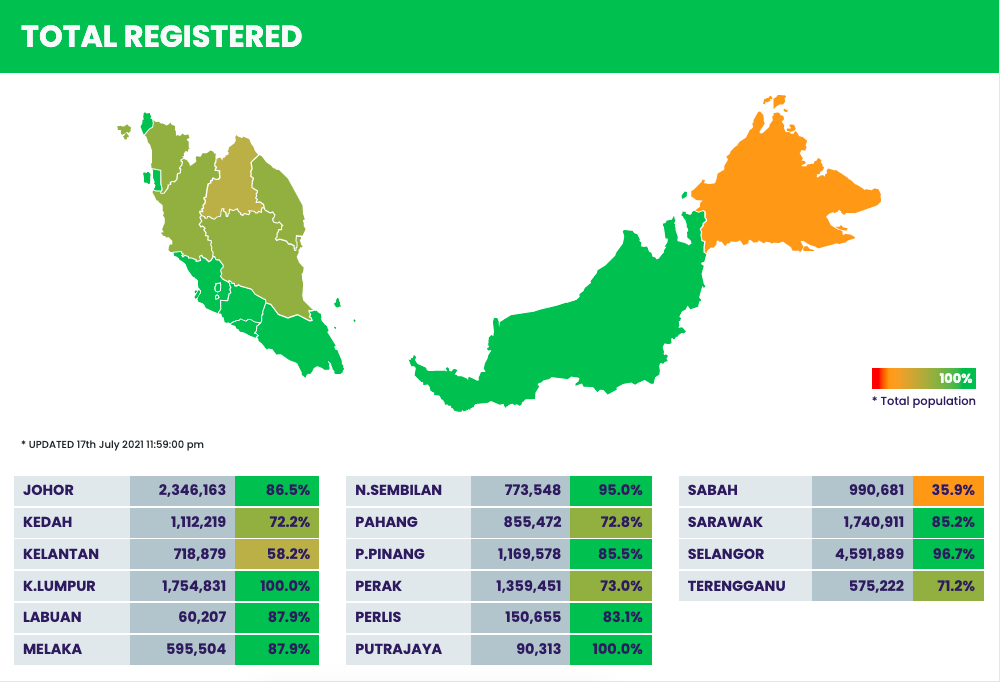
Sabah’s adult population stands at 990,681, however only a little over a third of the population is registered. Despite the fact that 475,084 people in Sabah received their first dose of vaccine, the percentage is significantly lower than the state’s overall population which is only 12.2%[3].
Possible Reasons For Low Vaccination Rates In Sabah
The geographical aspect is one of the most significant contributors. A majority of Sabah’s population live in rural and semi-rural areas, where infrastructure is often lacking, causing information, particularly about vaccination and immunisation, to reach them at a considerably slower rate[4].
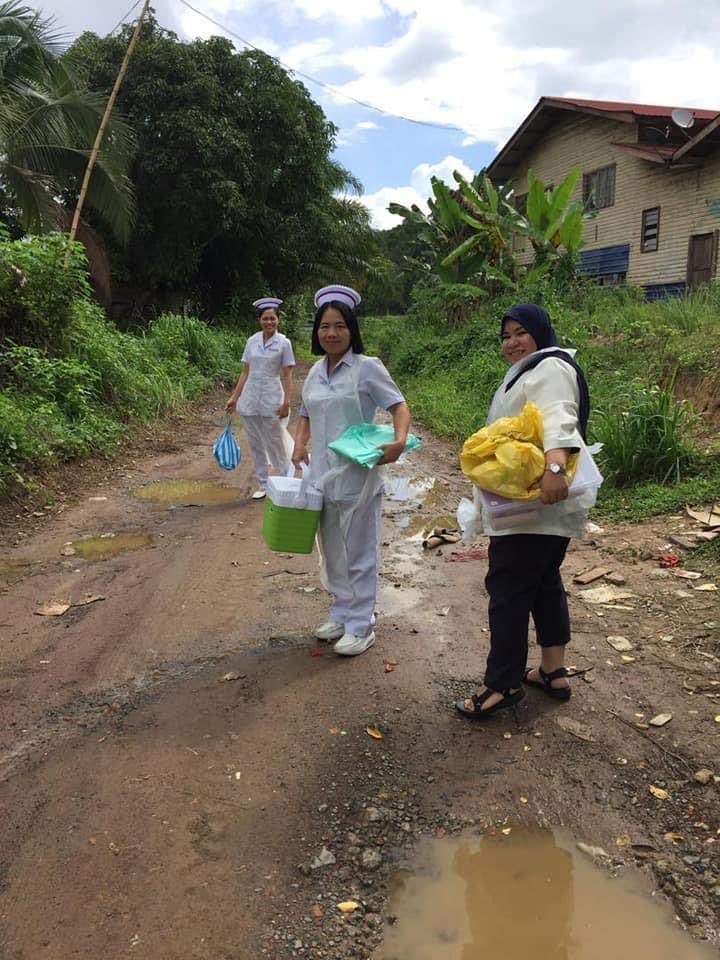
There are also concerns with differing viewpoints on the immunisation process. Some people are afraid of the adverse effects, while others are simply putting it off. People in rural locations and the elderly may not have access to a smartphone or may simply give up trying to figure out how to use the app.
As most people live in rural areas, downloading and registering on an app can be confusing and even difficult to do. For Obot Jefferi Joakim, who lives in a village deep in the interiors, COVID-19 is just another episode that will soon pass by.
But if you ask me to do this and that, I don’t know. I know it’s free, but it’s a lot of effort. – Obot Jefferi Joakim[4]
Datuk Michael Lui, President of the Kota Kinabalu Chinese Chamber of Commerce and Industry (KKCCCI), encouraged the government to give people who have registered for vaccination a timeline rather than letting them wait indefinitely[5]. This plan is based on the notion that it is pointless for people to register for vaccinations and wait aimlessly for an appointment date that is unknown.
People living in rural areas need considerable time to plan, arrange and make trips to town centres or cities to do regular things such as medical checkups, banking and buying food and basic supplies. We also have to take into consideration that internet access is not readily available in all parts of rural districts.
Browsing through social media, most netizens based in Sabah are expressing their concerns regarding not receiving any appointment dates even after applying for the vaccine early in the year.
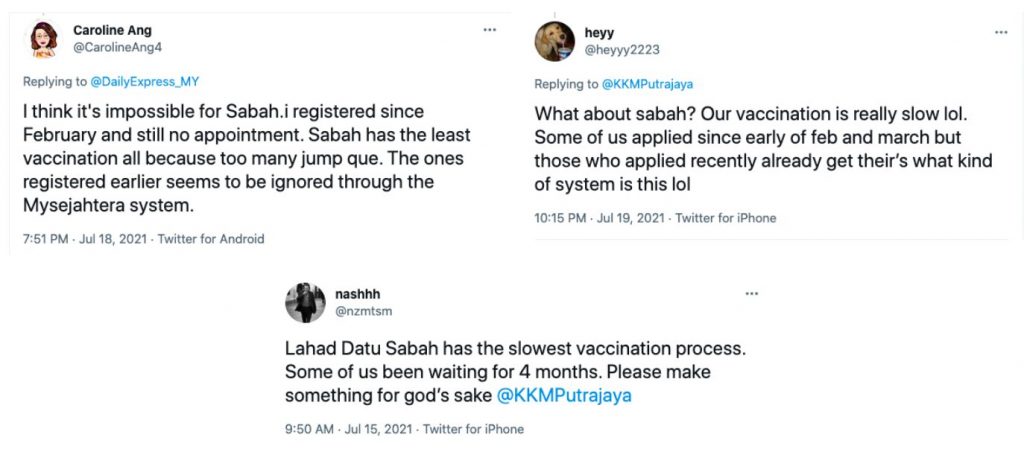
Among other challenges is inadequate information of vaccine information to rural folks. Most people would ask and enquire more about the risks and side effects of the vaccine and it is no different for rural folks – except that it takes double the effort to reach them.
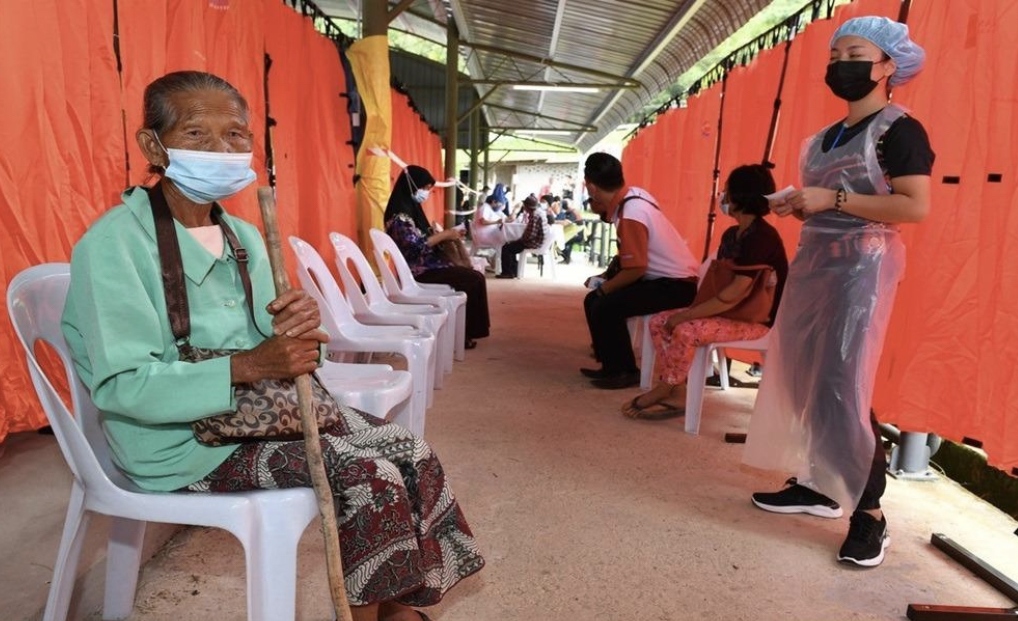
Datuk Ewon Benedick, Kadamaian assemblyman alluded that the “wait and see” lackadaisical attitude coupled with the lack of awareness and access has made it difficult to ramp up vaccinations in Sabah[4].
In most kampungs in rural areas, you really need to go to them to convince them in person. With restrictions in place like no gathering, churches and suraus being limited and with the health department fully occupied, no physical awareness programme being carried out to that kampungs. Datuk Ewon Benedick, Kadamaian Assemblyman[4]
New Strategies To Expedite Vaccination Drive
The good news is that the administration of Sabah is open to the possibility of obtaining vaccines for the state, as long as the supplies are approved by the authorities. The state received a RM200,000 donation on May 22, 2021, from an investment holding company that pledged to donate Sinophram COVID-19 vaccinations. There are also initiatives where employers can procure vaccines for their employees thereby speeding up the vaccination program.
As most of our members employ a small number of employees per company, it would be feasible to buy it ourselves. If there is an opportunity for everyone to group together then it is a different matter, but it also depends on pricing too. Yap Cheen Boon, president of the Sabah Employers Association[6]
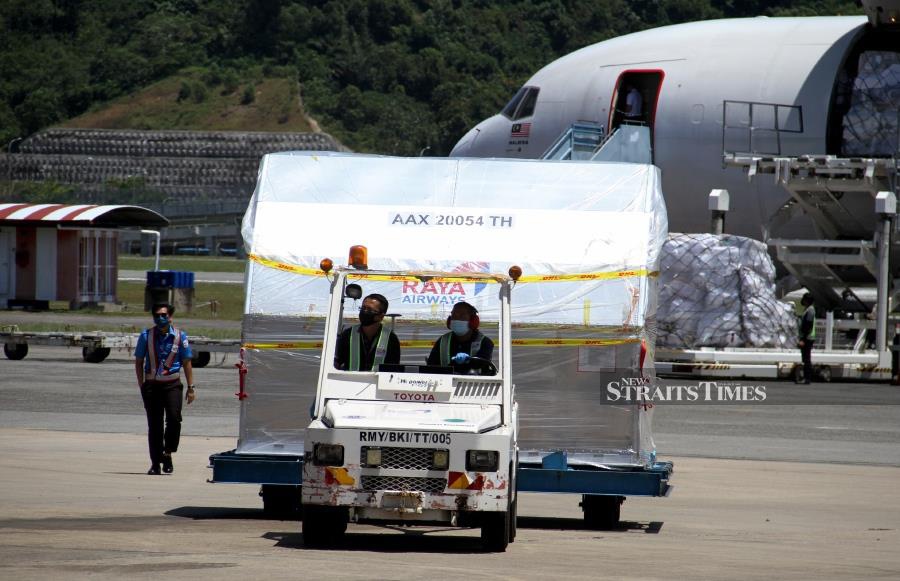
Sabah’s Chief Minister Datuk Seri Hajiji Noor is hopeful that more people will receive their vaccinations soon. In an interview recently he said that Sabah aims to vaccinate 30,000 people daily starting from July.
For June, the doses would be arriving weekly as planned. We expect to receive more doses in July and the following months. We predict that by July, we would be able to vaccinate 30,000 people daily. – Datuk Seri Hajiji Noor[8]
The state’s newly appointed Health Director, Dr Rose Nani Mudin is committed to improving vaccination uptake and participation. She is bringing to the table several strategies to improve the uptake and efficiency of the process.
Having been involved in the monitoring of multiple mega PPVs in Kuala Lumpur and Selangor she is confident that Sabah can employ the same method to boost Sabah’s vaccination rate and capacity.
I think the methods and strategies (in the mega PPVs) can be adopted in Sabah so that more people can be vaccinated. – Dr Rose Nani Mudin, Health Director[7]
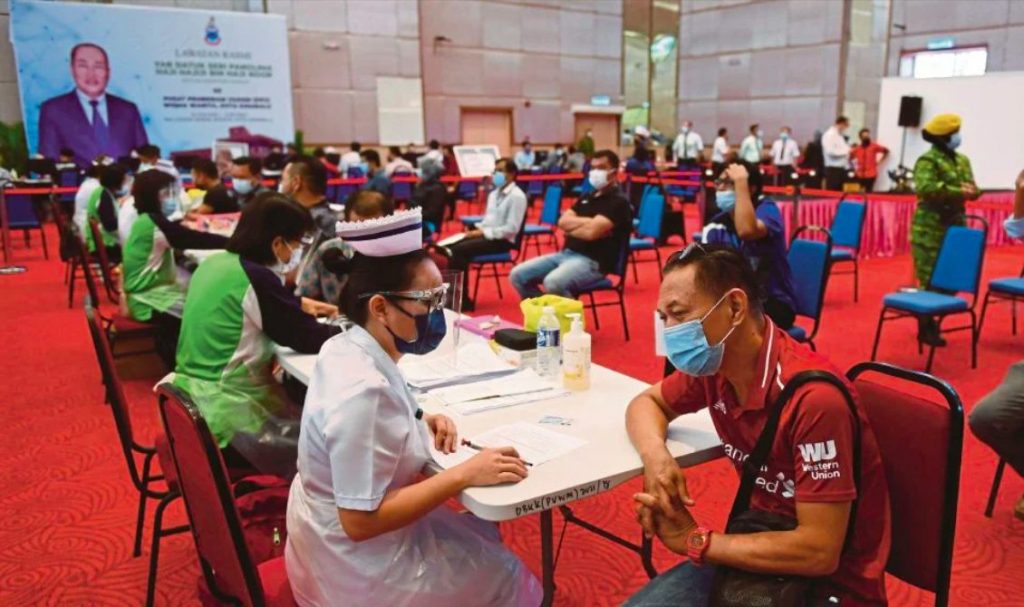
She also mentioned that the pre and post-vaccination assessment can be done more efficiently thereby cutting down the time spent in vaccination centres. This would allow more people to be vaccinated in a day.
Most of those present were healthy respondents. Health consultations with doctors are still done after registration, however, a thorough clinical examination is only carried out on those who are feeling unwell or dizzy. – Dr Rose Nani Mudin, Health Director[7]
The federal and state governments have also collaborated to mobilise volunteers to reach residents in remote locations. The state outreach programme now has 26 teams, with one team representing each district. Sabah Four Wheel Association, a non-governmental organisation also joined in to bring health workers to rural communities for outreach programmes. The Malaysian Armed Forces are also sending medical teams into rural areas under its Program Jiwa Murni to help[8].
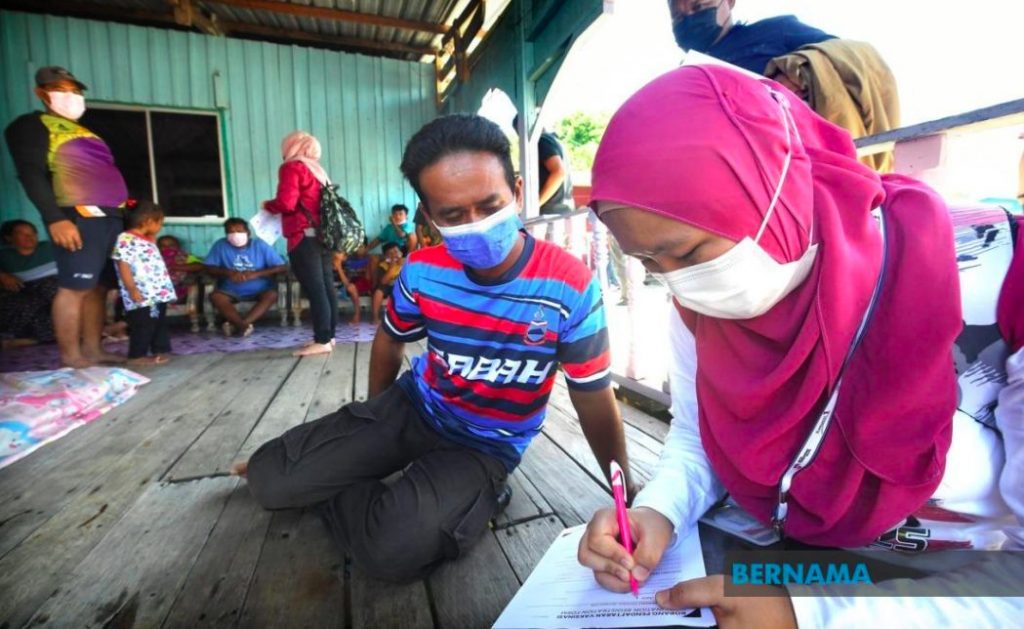
Another method on the cards for rural residents is the possibility of introducing a single-dose of CanSino vaccine[7]. The current vaccines administered in Sabah are Pfizer, AstraZeneca and Sinovac.
Sabah is also part of the nation’s Public-Private Partnership COVID-19 Industry Immunisation Programme (PIKAS) led by MITI. The public-private partnership programme enables the utilisation of work sites, conference and exhibition centres as Pusat Pemberian Vaksin (PPV), which comprises medical, non-medical, and security staff[9].
One of the main mega vaccination centres earmarked for this initiative is the Sabah International Convention Centre (SICC) in Kota Kinabalu said to be able to accommodate a crowd of 3,500 people daily with the priority on public and private industrial workers first.
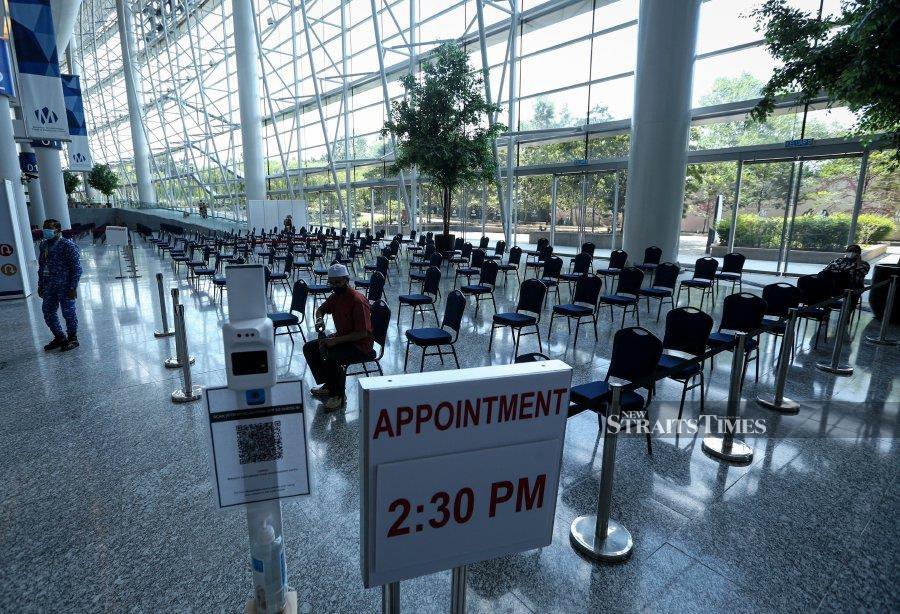
Private medical institutions and organisations are also part of the program. For urbanites, hospitals such as Gleneagles Hospital and Rafflesia Medical Centre as well as 36 other private clinics in the state have been enlisted as vaccination centres as of June 2021. The Pacific Sutera management has also agreed to open its hotel premises as a vaccination centre as part of the company’s Corporate Social Responsibility initiative[8].
Another vaccination centre that is opened in Kota Kinabalu is Wisma Wanita that is able to accommodate 400 people daily. This centre will focus on public service personnel and those in the frontline service including drivers, delivery workers, counter officers and those in the education sector. The state’s public service force makes up 20,549 people while those working in the federal public service sectors in Sabah amount to 107,172 people[8].
To date, Sabah has a total of 111 vaccination centres both in public health and non-health facilities as well as private premises[8].
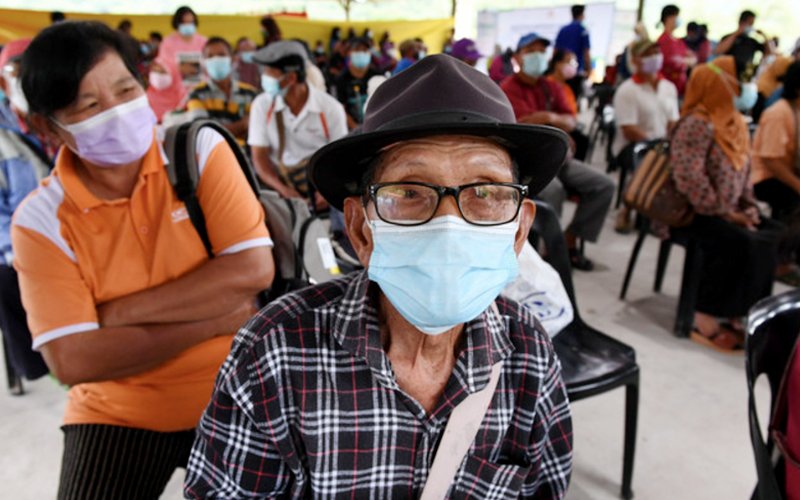
The fight against Covid-19 is a collective one. As a nation, no state should be left behind. The low vaccination rate in Sabah should be a collective concern, but with the new strategies in place, there is hope for greater protection for Sabahans.
Sabah does not want to be left behind because our mission and vision is to vaccinate all Sabahans as soon as possible. We hope to vaccinate at least 80% of the population so that the infectivity rate and the number of new clusters can be reduced. Dr Rose Nani Mudin, Health Director[7]
*Note: The adult population in this article is referring to individuals over 18 years old and passed the criteria for vaccine qualifications such as no allergic reaction, no pregnancy etc.
Explore Our Sources:
- The Special Committee On COVID-19 Vaccine Supply (JKJAV). FAQ. What Does Lindung Diri, Lindung Semua Mean? Link.
- World Health Organization. (2020). Q&A Detail – Coronavirus disease (COVID-19): Herd immunity, lockdowns and COVID-19. Link.
- The Special Committee On COVID-19 Vaccine Supply (JKJAV). Progress Statistics for the National Covid-19 Immunisation Programme. Link.
- Chan, J. (2021). With just 18pc registered for Covid-19 jab, why is Sabah’s rate so low? Yahoo! News. Link.
- Doksil, M. (2021). Address low vaccination rate, Sabah govt urged. Borneo Post Online. Link.
- Miwil, O. (2021). Sabah, local companies keen on procuring vaccines. New Straits Times. Link.
- Malay Mail. (2021). Sabah improving strategies to expedite vaccination process, says health director. Malaysia. Link.
- Doksil, M. (2021). 30,000 to be vaccinated daily in Sabah from July. Borneo Post Online. Link.
- Program Imunisasi Industri COVID-19 Kerjasama Awam Swasta (PIKAS). Link.

